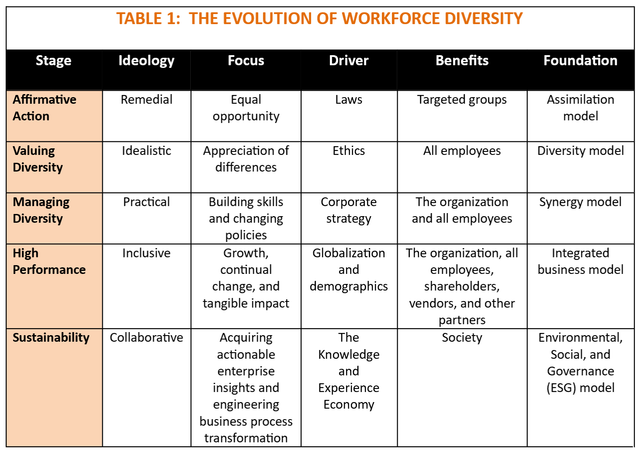Where Did Dei Hiring Start? What Are Its Origins? Is tnoHrAe
Diversity, Equity, and Inclusion (DEI) hiring has its origins deeply rooted in the Civil Rights Movement of the 1960s, particularly highlighted by the Civil Rights Act of 1964. This pivotal legislation was instrumental in prohibiting employment discrimination on the basis of race, color, sex, and other criteria, laying the groundwork for what would evolve into modern DEI initiatives in the workplace.
The evolution of DEI can be traced back to the mid-1960s when companies began implementing workplace diversity training programs as part of a broader societal push for equal rights for all individuals. Initially, these efforts were primarily focused on compliance with legal requirements such as affirmative action policies and equal employment legislation, aiming to create a more inclusive workplace conducive to the values expressed during the Civil Rights era.
Over the decades, DEI initiatives have transformed from merely satisfying legal obligations to becoming strategic imperatives for organizations. Today, they emphasize the importance of fostering diverse and multicultural work environments. Various sources note that while there is no formal consensus on the specifics, most supporters recognize the Civil Rights Act as a catalyst for the contemporary DEI framework. For further reading, you can explore the comprehensive history of DEI through various articles available online:
- History of DEI: The Evolution of Diversity Training Programs – NDNU
- What is DEI, and why is it dividing America? | CNN
- A Closer Look at DEI Strategies Throughout History – Cooleaf
- Diversity, Equity, Inclusion, Accessibility's Evolution
- The History of DEI and Its Critical Future – Forbes
- A History of DEI and the Future of Work – Inclusion Geeks
- What has DEI – CBS News
Regarding the effectiveness of DEI hiring from a measurable productivity standpoint, while the articles referenced primarily focus on the historical development and significance of DEI, there is an ongoing discussion about its measurable outcomes in terms of productivity and organizational performance. Many organizations are conducting research and assessments to determine how diverse teams may enhance creativity, problem-solving, and overall business success, indicating a positive correlation between effective DEI programs and productivity. However, specific measurable outcomes and data can often vary, necessitating further exploration into the empirical evidence available.
Sources


Related Questions
Work fast from anywhere
Stay up to date and move work forward with BrutusAI on macOS/iOS/web & android. Download the app today.
